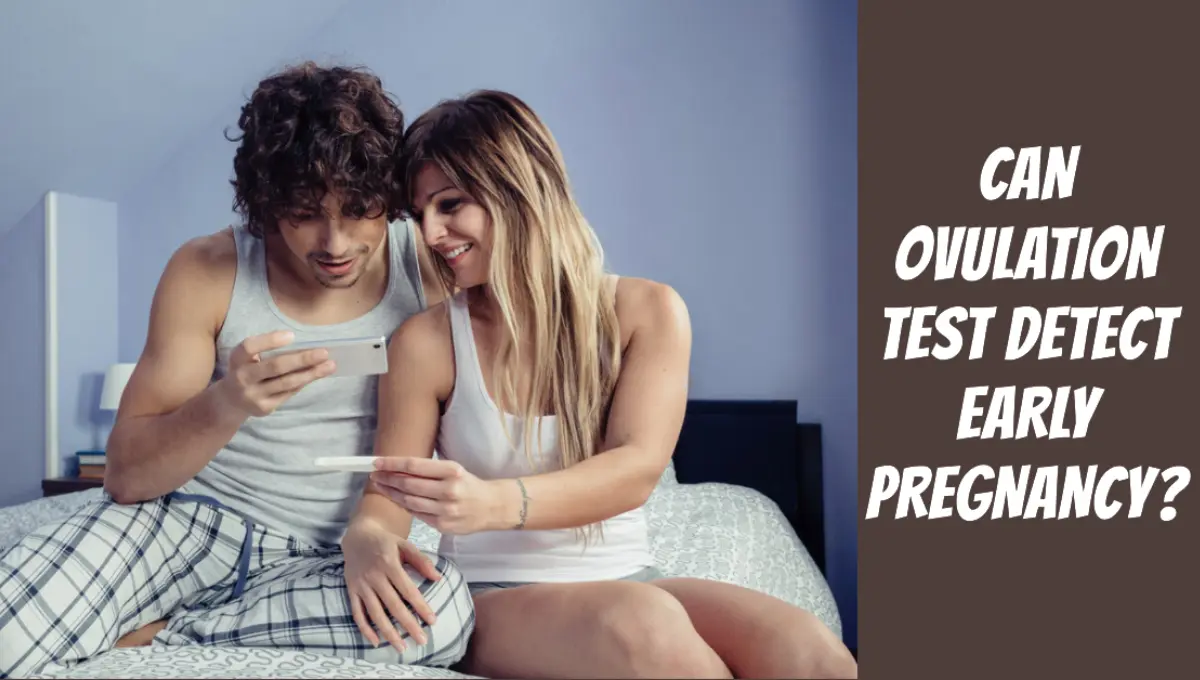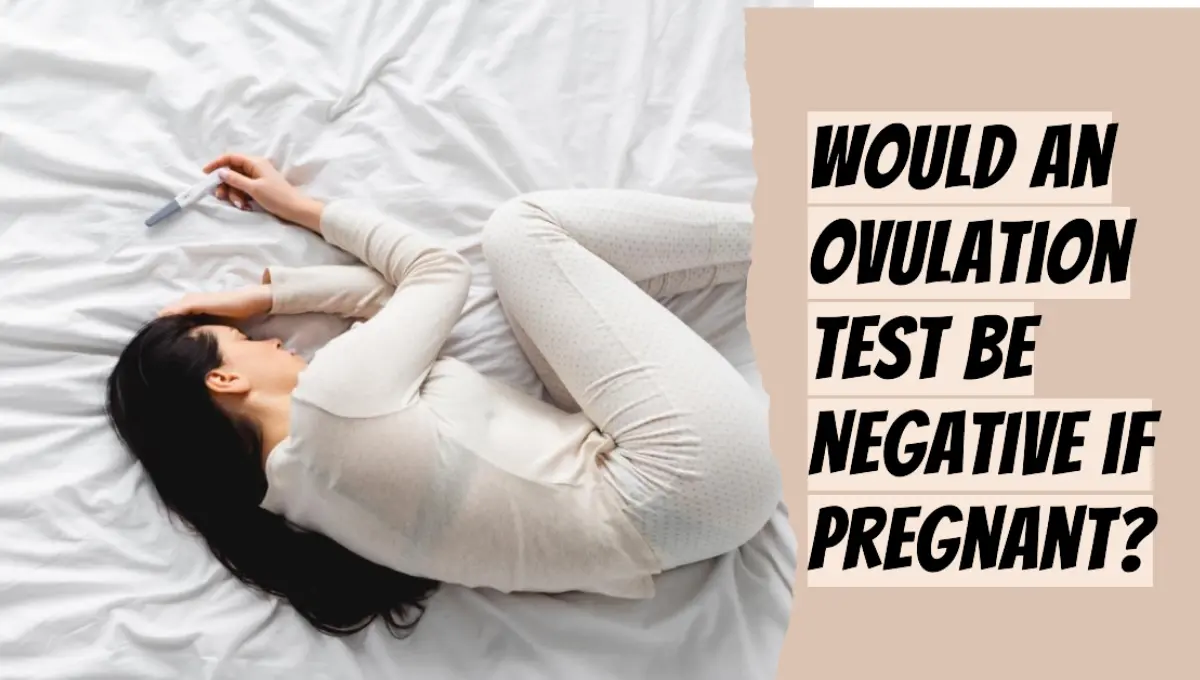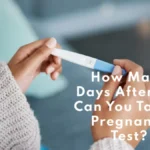
Are you trying to conceive and wondering about the reliability of ovulation tests during pregnancy? Many women rely on ovulation tests to track their fertility and increase their chances of getting pregnant. However, once pregnancy occurs, the dynamics change, and the effectiveness of ovulation tests in detecting pregnancy becomes uncertain. In this article, we will delve into the question, “Will ovulation test be positive if pregnant?” and provide you with the information you need to understand this topic thoroughly.
Related: Ovulation Calculator I Know Your Most Fertile Days
Will Ovulation Test Be Positive If Pregnant?
When a woman becomes pregnant, her body undergoes various hormonal changes. These changes occur due to the production of human chorionic gonadotropin (hCG), a hormone that supports pregnancy and is responsible for many early pregnancy symptoms. Ovulation tests work by detecting the luteinizing hormone (LH) surge, which triggers ovulation. Since the hCG hormone and LH hormone are similar in structure, there is a possibility of cross-reactivity between the two hormones. Therefore, it is plausible for an ovulation test to show a positive result during pregnancy. However, it is important to understand the limitations and factors that may affect the accuracy of these tests.
Related: Ovulation Test: Learn How it Works and Know the Best 9 Brands
Factors Affecting Ovulation Test Results During Pregnancy
Several factors can influence the accuracy of ovulation tests when used during pregnancy. Let’s explore these factors in more detail:
1. Timing
The timing of when you take an ovulation test during pregnancy is crucial. Ovulation tests are designed to detect the LH surge that occurs before ovulation. In a typical menstrual cycle, this surge happens around 24-36 hours before ovulation. However, during pregnancy, the hormonal levels fluctuate, and the LH surge may not follow the same pattern. Therefore, using an ovulation test during pregnancy may yield inconsistent results.
2. Sensitivity of the Test
Each ovulation test has a specific sensitivity level, which determines the minimum amount of LH it can detect. Some tests have a higher sensitivity than others. During early pregnancy, the concentration of hCG in urine may not be high enough to trigger a positive result on an ovulation test with lower sensitivity. Therefore, if you suspect pregnancy, it is advisable to use a pregnancy test specifically designed to detect hCG.
3. Cross-reactivity
As mentioned earlier, there is a possibility of cross-reactivity between the LH hormone and hCG hormone. Ovulation tests detect the LH surge, but during pregnancy, the presence of hCG may interfere with the test results. In some cases, a positive ovulation test result during pregnancy may be due to the presence of hCG rather than an actual LH surge.
4. Miscalibration
Ovulation tests rely on accurate calibration to provide reliable results. However, variations in manufacturing and storage conditions can affect the calibration of these tests. It is essential to follow the instructions provided with the ovulation test and ensure that it is within its expiration date to obtain the most accurate results.
Related: What are the Chances of Getting Pregnant after Stopping Birth Control?
Can Ovulation Test Detect Early Pregnancy?

Ovulation tests are designed to detect the surge in luteinizing hormone (LH) that occurs just before ovulation, indicating the most fertile time in a woman’s menstrual cycle. These tests are not specifically designed to detect pregnancy, and they may not reliably indicate pregnancy in the early stages.
Ovulation tests work by detecting the presence of LH in urine. During pregnancy, another hormone called human chorionic gonadotropin (hCG) is produced. While hCG is structurally similar to LH, it is not the same hormone. Ovulation tests may occasionally detect hCG if the levels are high enough, but this is not their intended purpose.
To reliably determine whether you are pregnant, it is best to use a pregnancy test specifically designed to detect hCG. These tests are sensitive to lower levels of hCG and are more accurate for confirming pregnancy.
Would an Ovulation Test be Negative if Pregnant?

Yes, typically an ovulation test would be negative if you are pregnant. Ovulation tests detect the presence of luteinizing hormone (LH) in urine, which surges before ovulation to indicate the most fertile time in a woman’s menstrual cycle.
During pregnancy, the hormone responsible for maintaining pregnancy is human chorionic gonadotropin (hCG), not LH. Although hCG is structurally similar to LH, ovulation tests are not designed to detect hCG. Therefore, in most cases, an ovulation test would show a negative result if you are pregnant.
To confirm pregnancy, it is best to use a pregnancy test specifically designed to detect hCG. These tests are more sensitive to the presence of hCG and can provide accurate results to confirm pregnancy.
Is LH present in Early Pregnancy?
Yes, LH (luteinizing hormone) can be present in early pregnancy, although at lower levels compared to the surge that occurs during ovulation. During pregnancy, LH levels typically decrease and remain relatively low throughout the pregnancy. However, it’s important to note that LH is not the primary hormone associated with pregnancy; that role is fulfilled by human chorionic gonadotropin (hCG).
hCG is produced by the developing embryo after implantation in the uterus and serves as a crucial marker for pregnancy. Pregnancy tests are designed to detect the presence of hCG in urine or blood samples. These tests are more sensitive to hCG levels and can provide a reliable indication of pregnancy, especially during the early stages.
Will Ovulation Test get Darker if Pregnant?
No, ovulation tests are not designed to detect pregnancy. Ovulation tests detect the surge of luteinizing hormone (LH) in a woman’s body, which typically occurs 24-36 hours before ovulation. These tests are used to predict the most fertile days during a woman’s menstrual cycle.
If you are pregnant, a standard ovulation test will not indicate pregnancy. However, there are specific pregnancy tests available that are designed to detect the presence of human chorionic gonadotropin (hCG), a hormone produced during pregnancy. These tests are more reliable in determining whether or not you are pregnant.
Does a Faint Line on Ovulation Test mean I might be Pregnant?
A faint line on an ovulation test typically indicates a low level of luteinizing hormone (LH) in your body. It does not necessarily indicate pregnancy. Ovulation tests are designed to detect the LH surge that occurs prior to ovulation, and a faint line may suggest that your LH level is rising but has not yet reached its peak.
What does 2 Lines on Ovulation Test mean?
Two lines on an ovulation test generally indicate a positive result, suggesting that you are likely experiencing an LH surge in your body. The two lines are usually referred to as the test line and the control line. The control line is typically darker or of a fixed color, serving as a reference point to ensure the test is functioning properly.
When the test line becomes as dark as or darker than the control line, it signifies that the level of luteinizing hormone (LH) in your body has risen, indicating that ovulation may occur within the next 24-36 hours. This surge in LH is an important signal that you are approaching your most fertile period in the menstrual cycle.
If you are actively trying to conceive, this is an optimal time to engage in sexual intercourse in order to increase the chances of fertilization. Keep in mind that ovulation tests alone cannot confirm whether fertilization or pregnancy has occurred; they simply indicate the surge of LH and the likelihood of ovulation
How does a Positive Ovulation Test look like?
A positive ovulation test typically shows two lines, where the test line is as dark as or darker than the control line. The test line indicates the presence of luteinizing hormone (LH) in your urine, and when it matches or surpasses the intensity of the control line, it suggests that you are experiencing an LH surge.
What are the Symptoms of Pregnancy during Ovulation?
During ovulation, which is the release of an egg from the ovary, the body prepares for a potential pregnancy. However, it’s important to note that the symptoms experienced during ovulation itself may not be directly related to pregnancy. Pregnancy symptoms typically occur after implantation of the fertilized egg in the uterus, which happens several days after ovulation. Nonetheless, here are some general symptoms that some women may experience during ovulation and early pregnancy:
- Ovulation Symptoms:
- Light abdominal pain or twinges on one side (known as mittelschmerz)
- Increased cervical mucus that is clear and stretchy
- Breast tenderness or sensitivity
- Increased sex drive
- Slight increase in basal body temperature
- Light spotting or slight bleeding
- Early Pregnancy Symptoms:
- Missed period (although this is not exclusive to pregnancy)
- Breast tenderness or sensitivity, including swelling and darkening of the areolas
- Fatigue or tiredness
- Nausea or morning sickness (usually starts around the 6th week of pregnancy)
- Increased urination
- Food cravings or aversions
- Mood swings or emotional changes
- Heightened sense of smell
- Bloating or mild abdominal discomfort
Conclusion
So back to the big question, will ovulation test be positive if pregnant? – well, while it is possible for an ovulation test to show a positive result during pregnancy, it is not a reliable method to confirm pregnancy. Ovulation tests are designed to detect the LH surge that triggers ovulation, not the presence of pregnancy. If you suspect you might be pregnant, it is recommended to use a pregnancy test specifically designed to detect the hCG hormone.
Additionally, it’s important to consider the timing, sensitivity of the test, and the possibility of cross-reactivity when interpreting the results of an ovulation test during pregnancy. For accurate and conclusive results, consult with your healthcare provider and follow their guidance for monitoring your pregnancy.
Frequently Asked Questions (FAQs)
Can an Ovulation Test confirm Pregnancy?
No, an ovulation test cannot confirm pregnancy. Ovulation tests are designed to detect the LH surge that triggers ovulation, not the presence of pregnancy. To confirm pregnancy, it is recommended to use a pregnancy test that specifically detects the hCG hormone.
Why would an Ovulation Test be Positive if Pregnant?
An ovulation test may show a positive result during pregnancy due to cross-reactivity between the LH hormone and hCG hormone. Since the structure of these hormones is similar, an ovulation test can sometimes detect the presence of hCG and give a positive result. However, it’s important to note that a positive ovulation test during pregnancy does not confirm pregnancy itself.
Can I Rely on an Ovulation Test if I suspect Pregnancy?
If you suspect you might be pregnant, it is best to use a pregnancy test specifically designed to detect hCG. Pregnancy tests are more accurate in confirming pregnancy as they are designed to detect hCG at lower levels than ovulation tests. Using an ovulation test during pregnancy may yield inconclusive or inconsistent results.
Are there any Specific Ovulation Tests for Pregnancy?
No, there are no specific ovulation tests designed to detect pregnancy. Ovulation tests are primarily used to track fertility and identify the LH surge that precedes ovulation. If you suspect pregnancy, it is recommended to use a pregnancy test that is specifically designed to detect hCG.
Should I continue using Ovulation Tests if I am Pregnant?
Once you have confirmed your pregnancy, there is no need to continue using ovulation tests. Ovulation tests are intended for tracking fertility and identifying the most fertile days in a menstrual cycle. During pregnancy, ovulation does not occur, as the body is already nurturing a fertilized egg. It is advisable to focus on prenatal care and consult with your healthcare provider for guidance on monitoring your pregnancy.
Can a Positive Ovulation Test indicate a problem with Pregnancy?
A positive ovulation test during pregnancy does not necessarily indicate a problem with the pregnancy. It is more likely due to the cross-reactivity between the LH and hCG hormones. However, if you have concerns about your pregnancy or experience any unusual symptoms, it is important to consult with your healthcare provider for proper evaluation and guidance.






